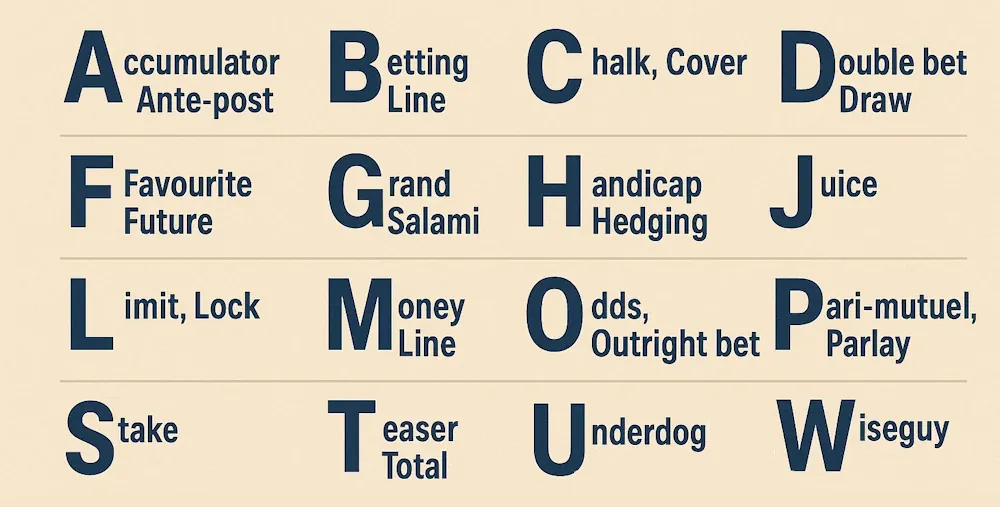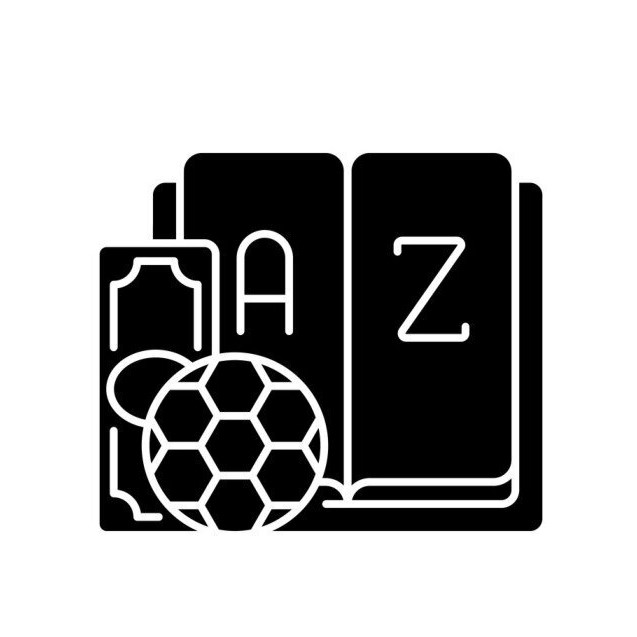Be informed and make your next wager with a full grasp of the betting terminology. Our sports betting glossary page contains many of the words and expressions you will hear when you visit any online South African bookmaker. Understand the various betting terms and their application to ensure you aren't playing with a handicap knowledge-wise. The more informed you are about what you are doing and the possible outcomes, the better your chances of coming out on top.
Revise your knowledge of betting terminology and enhance your prospects of coming out on top today. In this segment, we detail the terminology associated with betting on horse races, as well as on soccer and rugby—two sports on which much betting occurs. For all of you who are eager to take the plunge and place a bet on the first line, this guide is intended especially for you.
Betting Terms Explained

Here are some common terms that a novice betting on sports for the first time may need to understand in order to make the right wagers.
A-H
- Accumulator – this term refers to the collective bet that features two or more bets in a single bet slip.
- Ante-post – this relates to the early market bets offered before the competition begins.
- Betting Line – refers to the odds on a match that determine the favourites and the underdog in a tie.
- Buy points – this bet entails paying more than what the sportsbook’s predetermined to move the point spread to a custom betting line.
- Chalk – the team pegged as the favourites to win.
- Cover – this reflects the scenario in which the favourite team wins the match by a bigger margin than described in the handicap or spread bet.
- Double bet – also known as doubling up, when a player wagers twice the value of the bet to take advantage of the odds.
- Draw – when a match ends in a tie after regulation time.
- Edge – relates to the advantage that a bettor has from having knowledge about how the result will go.
- Exposure – refers to the value attached to a potential loss in a match.
- Favourite – this is the individual or the team that is perceived to have the best chance to win the match.
- Future – this refers to wagers on the winner of the competition before the event begins.
- Grand Salami – this refers to the bet on the total number of goals that will be scored in all the games in a single league round of matches.
- Handicap – this refers to the point margin given to the underdog in a match that is intended to level the playing field.
- Hedging – this refers to placing a bet on the opposite side after having placed a wager on a different side to ensure that you do not lose.
I-W
- In-play betting – the process of placing bets on the outcome of the game after it has already started playing. It is also known as live betting.
- Juice – this is the portion that the sportsbook charge for the allowing players to bet online.
- Limit – reflects the maximum bet that is allowed on a specific line.
- Lock – a situation in which a selected bet is considered an obvious win.
- Money Line – refers to a wager on the outcome of the game to be either win, lose or draw.
- Odds – indicates the probability of the outcome of a match.
- Outright bet – betting on the winner of a tournament.
- Pari-mutuel – this refers to a wager amongst bettors as opposed to against a sportsbook.
- Parlay – the process in which the betting calculator adds extra bets onto a single bet slip to improve the odds.
- Stake – to risk your money wagering on a sports event.
- Teaser – a specific selection of parlay bets that are combined in a single ticket to attract players to wager online.
- Total – the aggregate amount of goals or points in a match in which bettors predict the match will end. It is also known as the betting terms over-under.
- Underdog – the team or player pegged the less likely to win in a tie.
- Wiseguy – a term used to refer to a well-informed or knowledgeable bettor or handicapper.

